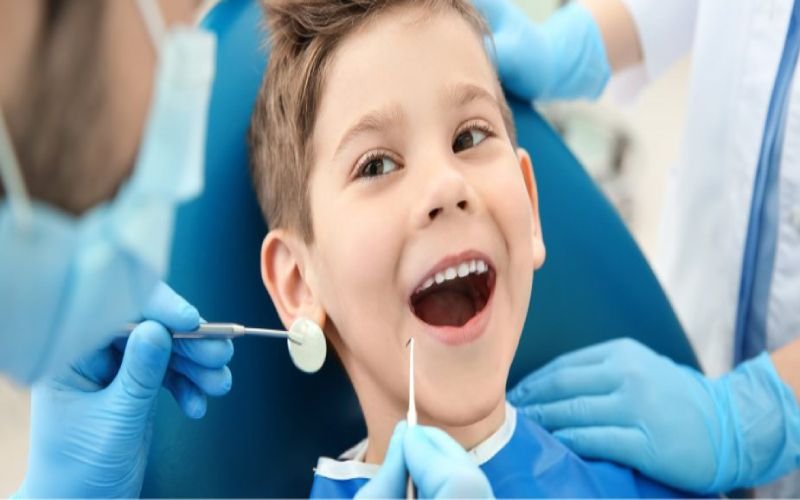
Menu
Kids Dental Care
What is Kids Dental Care?
Kids’ dental care focuses on maintaining and promoting good oral health in children from infancy through adolescence. It involves a range of preventive, diagnostic, and therapeutic measures to ensure healthy teeth and gums as children grow.

Key Aspects of Kids' Dental Care:
Early Dental Visits:
- First Visit: The American Academy of Pediatric Dentistry recommends that children have their first dental visit by their first birthday or within six months of the eruption of their first tooth.
- Purpose: Early visits help establish a dental home, educate parents on proper oral hygiene, and monitor the development of teeth and jaw.
Preventive Care:
- Brushing and Flossing: Teach children to brush their teeth twice a day with fluoride toothpaste and to floss daily as they grow older and their teeth start to touch.
- Dental Sealants: Application of sealants on the chewing surfaces of molars to protect against cavities.
- Fluoride Treatments: Professional fluoride applications help strengthen tooth enamel and prevent decay.
Diet and Nutrition:
- Healthy Eating: Encourage a balanced diet with limited sugary snacks and drinks. Sugary foods and beverages can contribute to tooth decay.
- Water Intake: Promote drinking water, especially fluoridated water, which helps strengthen teeth.
Monitoring Development:
- Teeth Eruption: Monitor the eruption pattern of primary (baby) teeth and ensure they come in correctly. Address any issues such as delayed eruption or misalignment.
- Orthodontic Evaluation: Early evaluation (around age 7) to identify potential orthodontic issues, such as bite problems or misaligned teeth, that may require early intervention.
Oral Hygiene Education:
- Proper Techniques: Teach children how to brush and floss properly, using age-appropriate tools such as child-sized toothbrushes and fluoride toothpaste.
- Routine: Establish a consistent oral hygiene routine and make brushing and flossing a fun and positive experience.
Handling Dental Issues:
- Cavities: Treat cavities promptly to prevent more serious dental issues. Restorative treatments may include fillings or crowns, depending on the extent of decay.
- Trauma: Address any dental trauma, such as chipped or knocked-out teeth, with appropriate emergency care and follow-up.
Behavior Management:
- Positive Experience: Create a positive dental experience for children to reduce anxiety and fear. Use gentle and supportive language, and provide reassurance.
- Rewards and Praise: Use encouragement and rewards to motivate children to maintain good oral hygiene habits.
Regular Check-Ups:
- Frequency: Schedule regular dental check-ups, typically every six months, to monitor oral health, perform cleanings, and address any issues early.
- Professional Cleanings: Professional cleanings remove plaque and tartar buildup and help prevent dental problems.
Importance of Kids' Dental Care:
- Establishing Good Habits: Early dental care helps children develop good oral hygiene habits that can last a lifetime.
- Preventing Dental Problems: Regular check-ups and preventive measures reduce the risk of cavities, gum disease, and other dental issues.
- Promoting Overall Health: Good oral health is linked to overall health, as dental problems can impact speech, eating, and self-esteem.